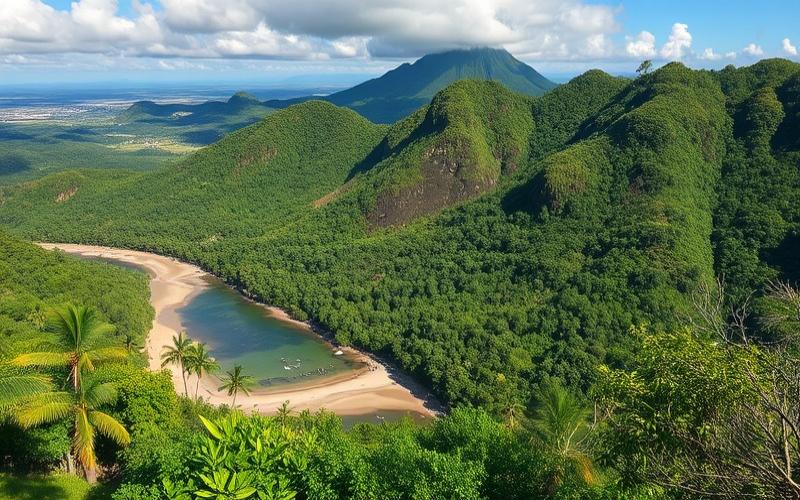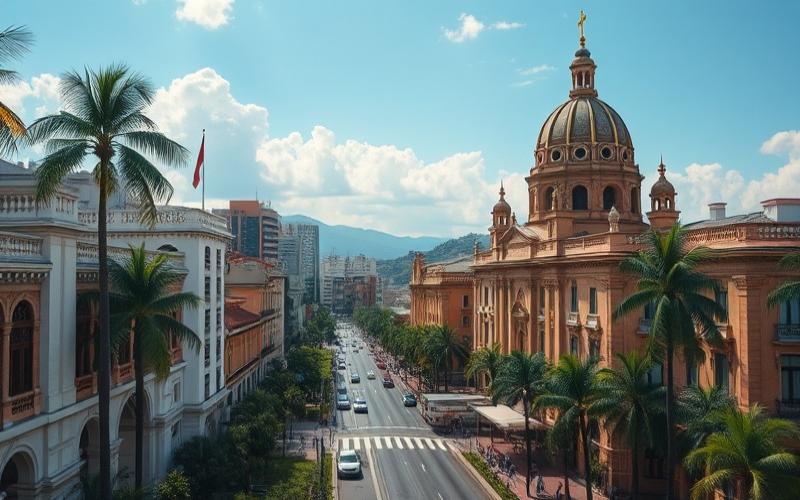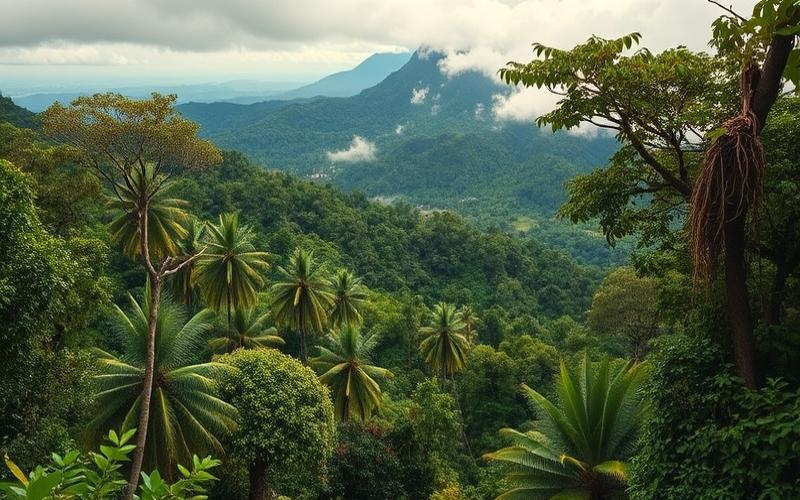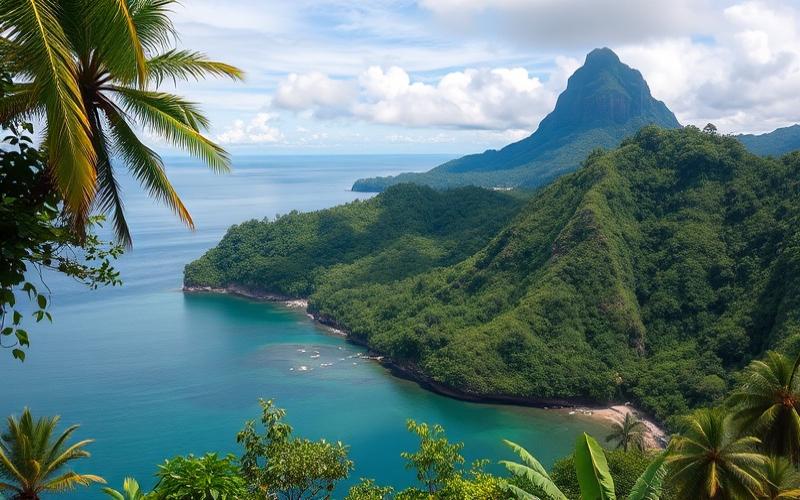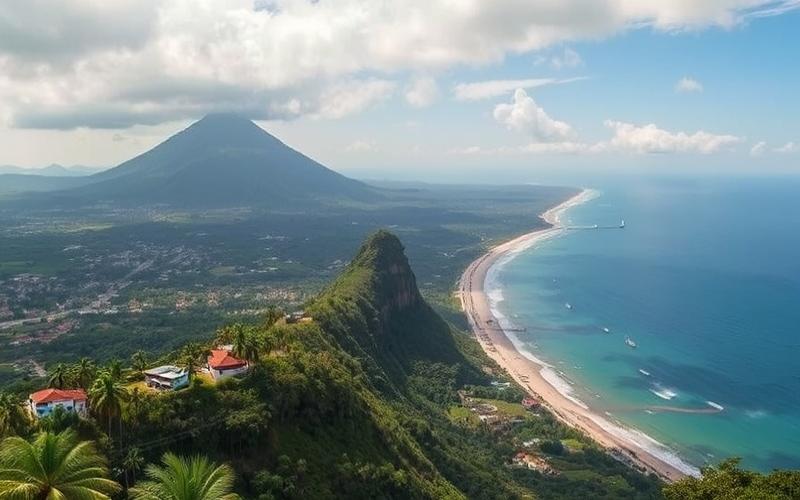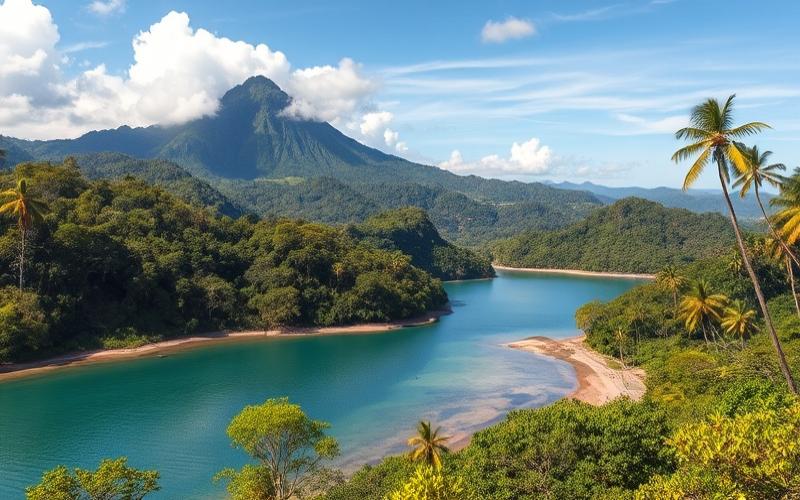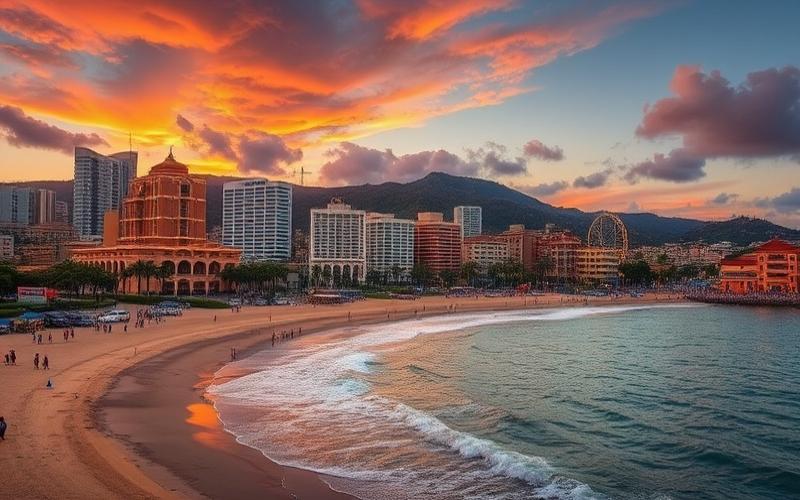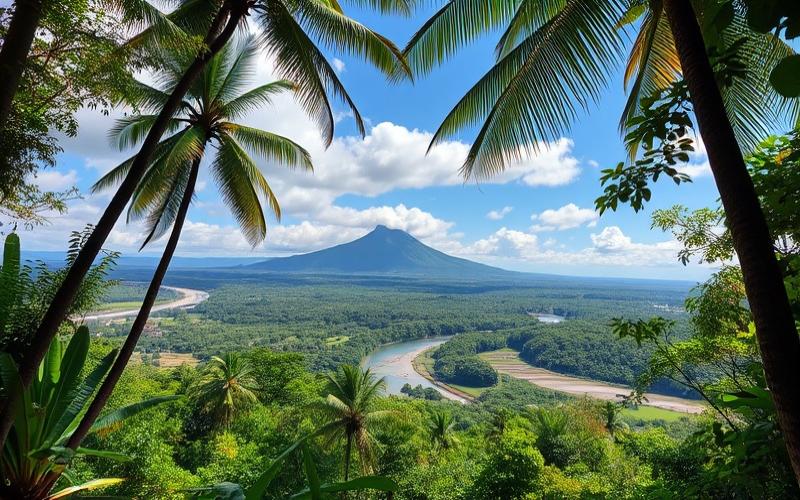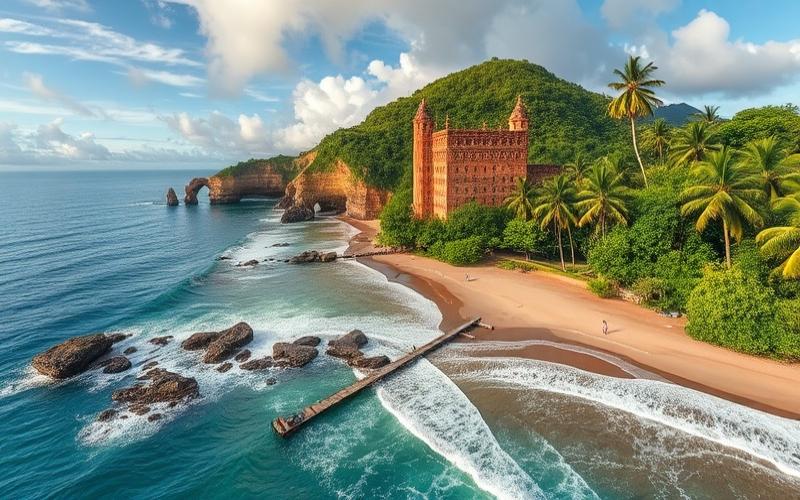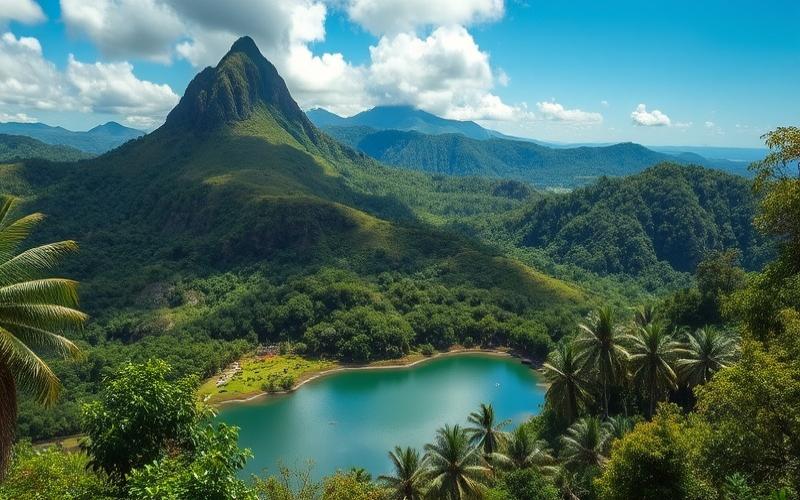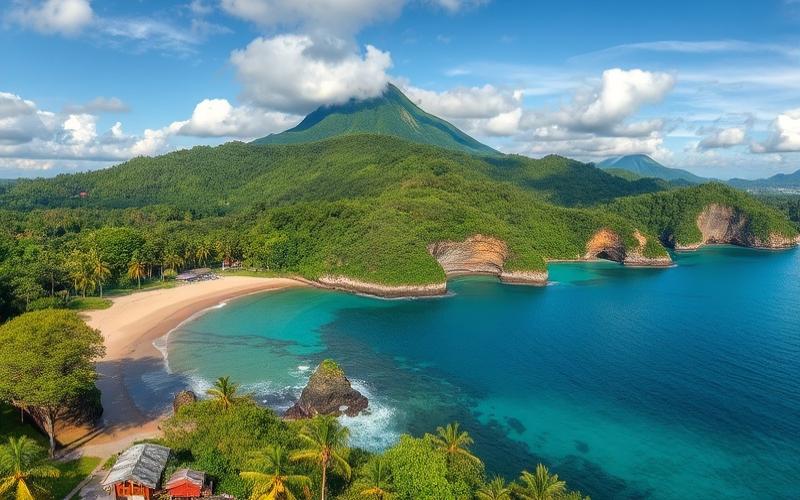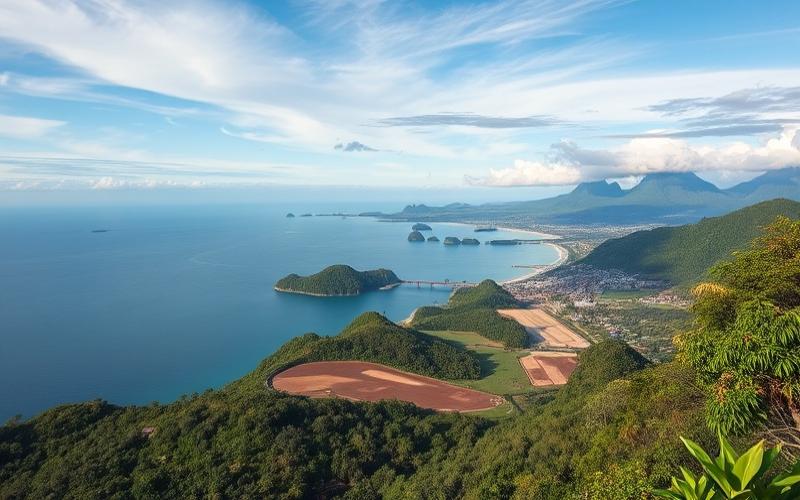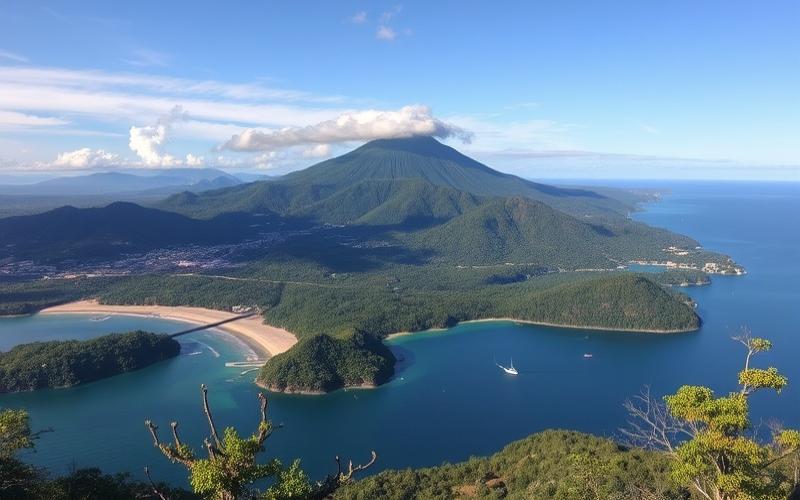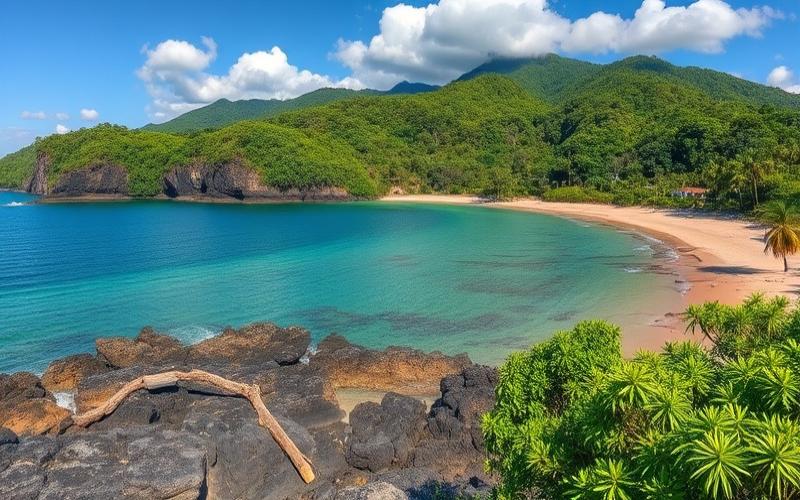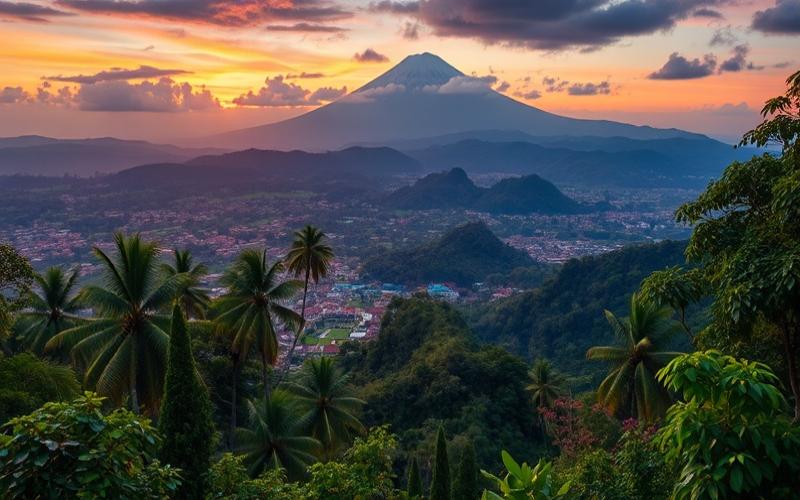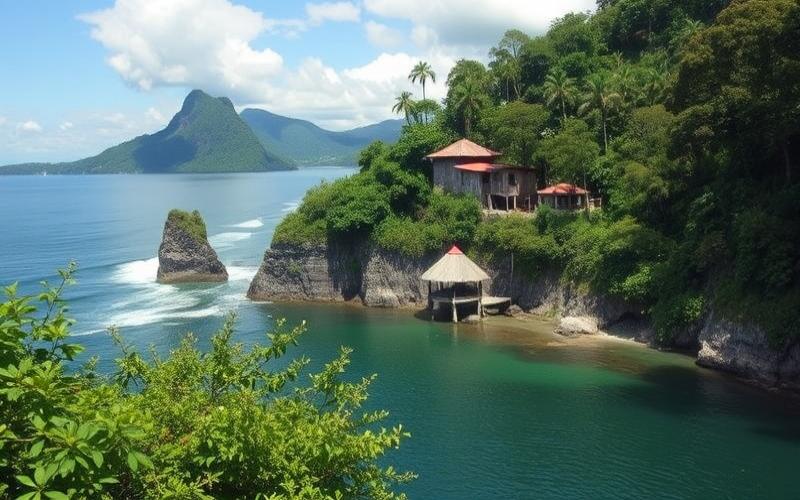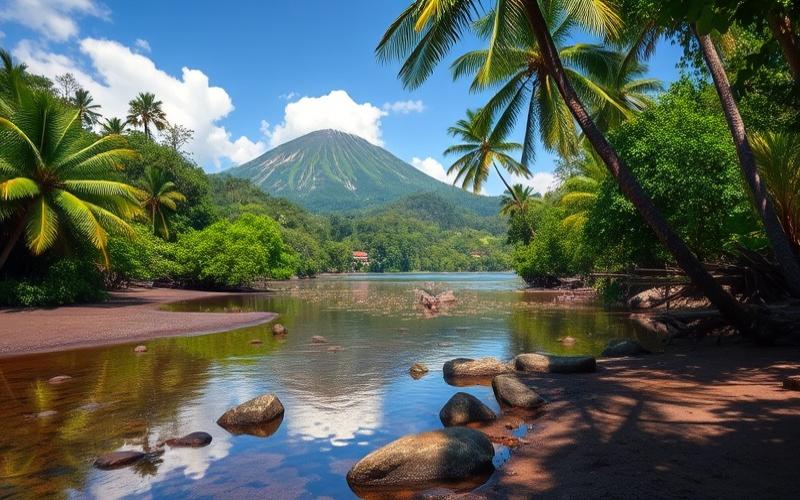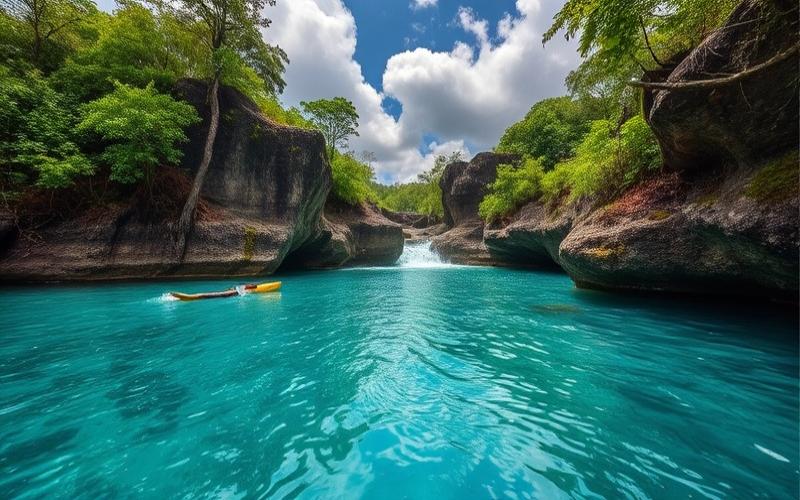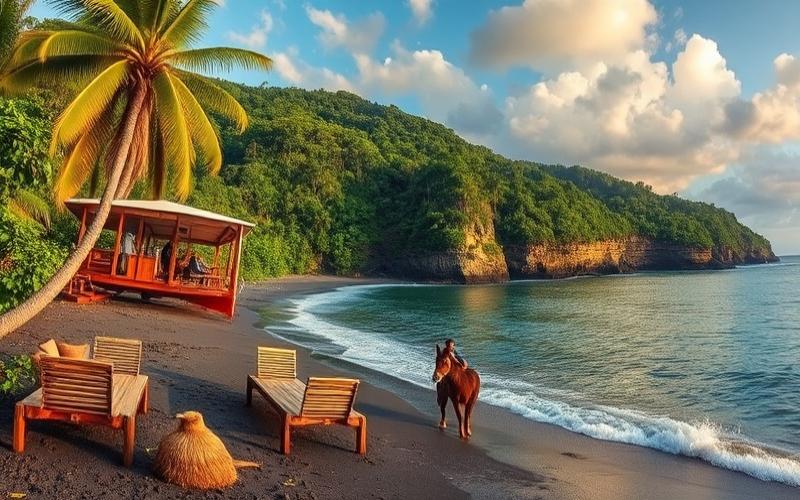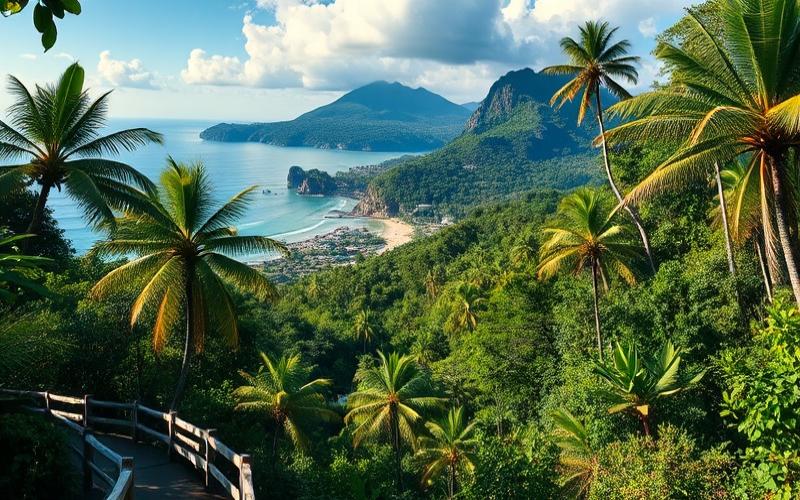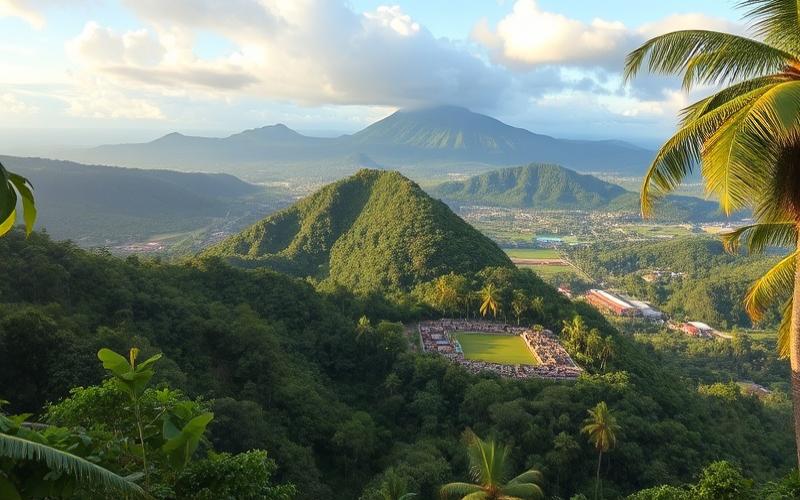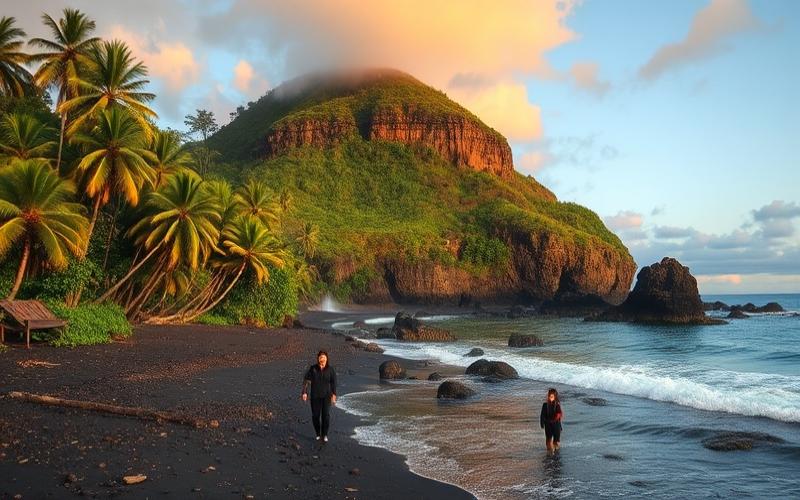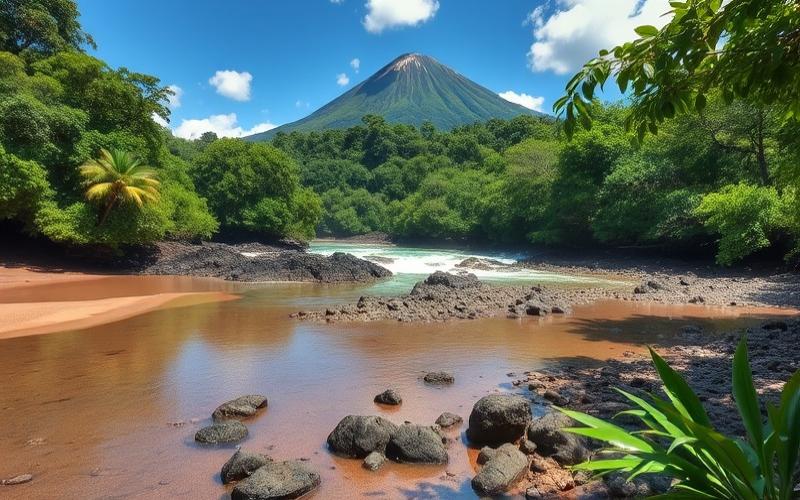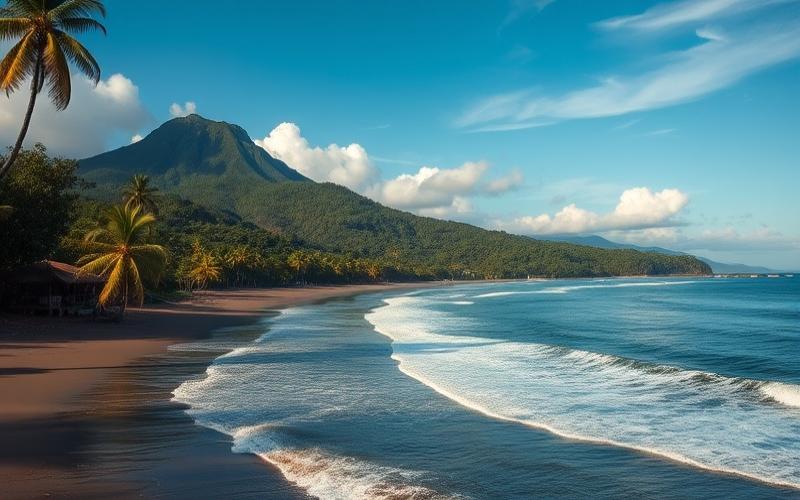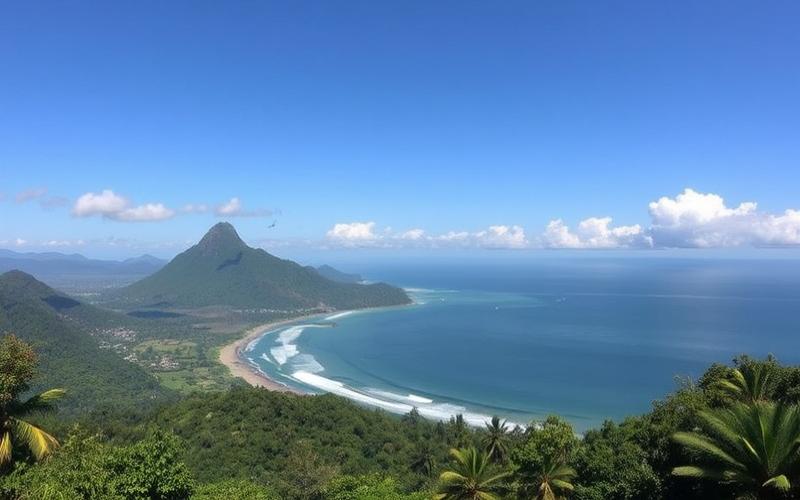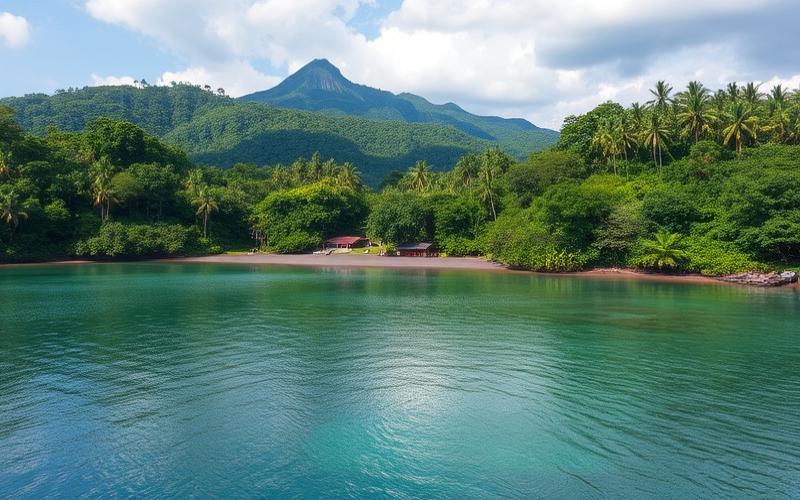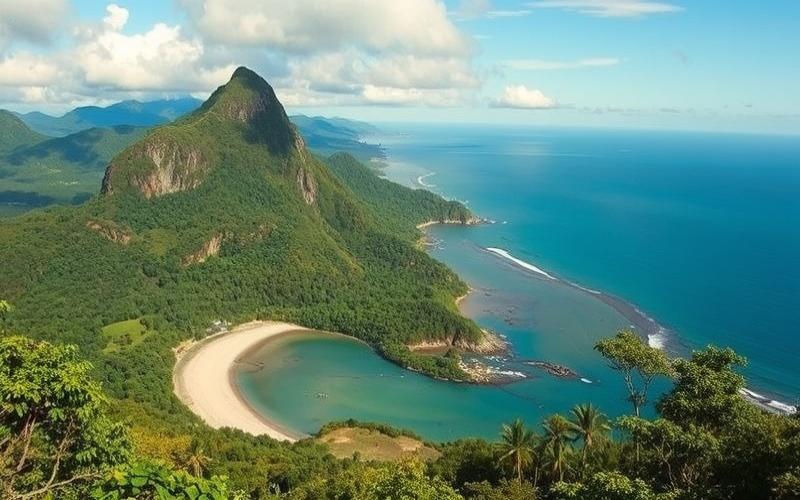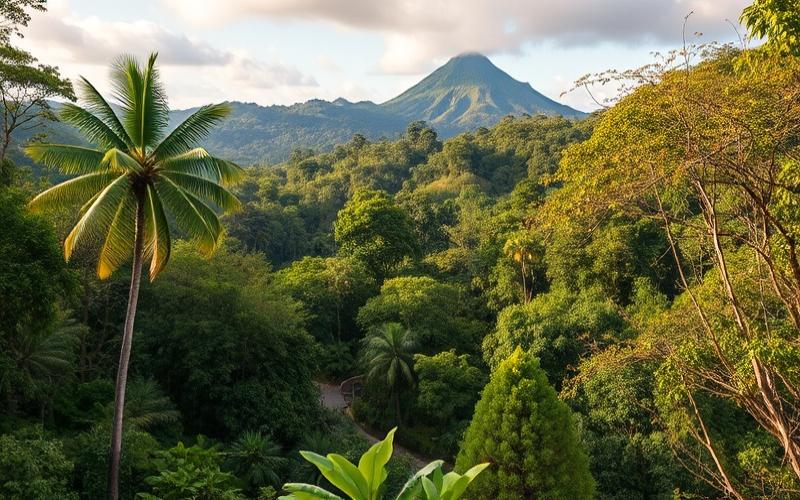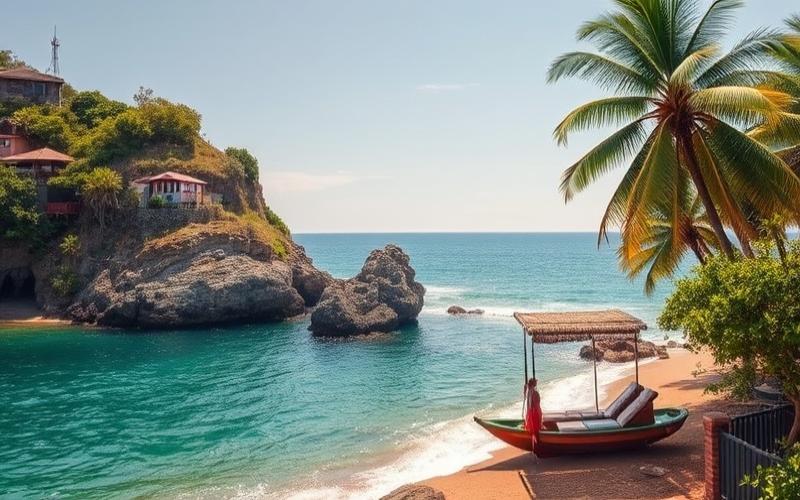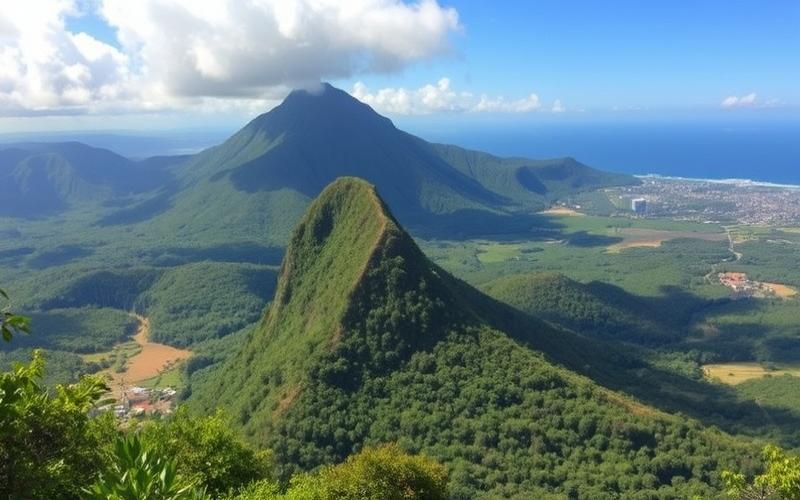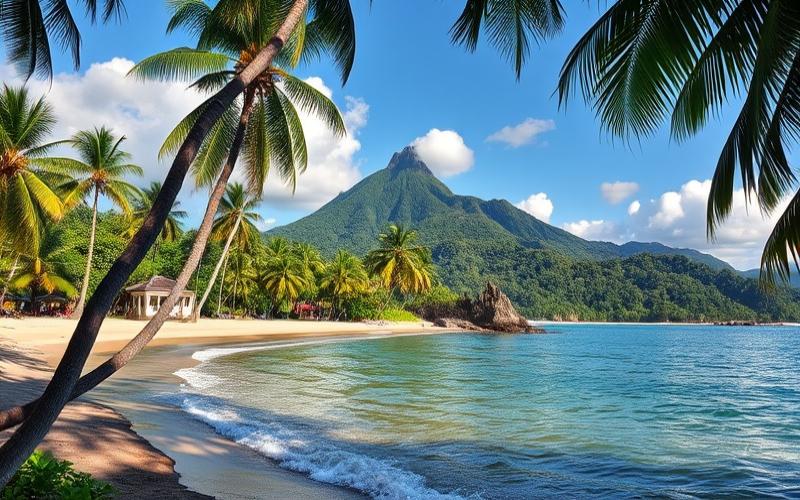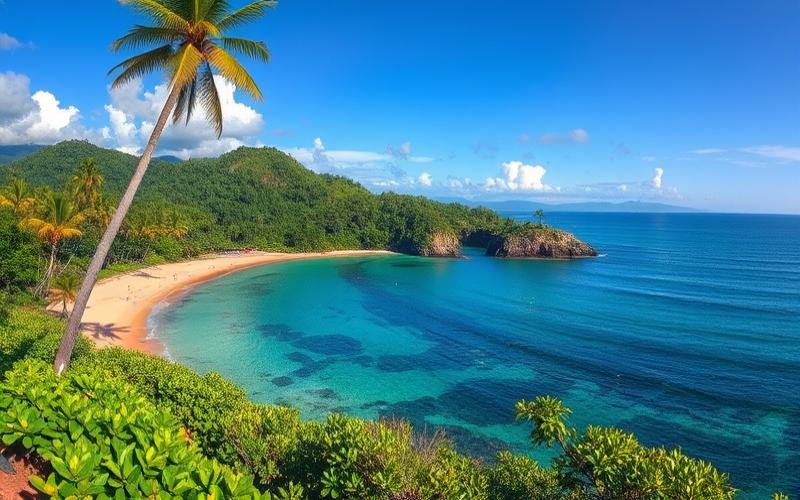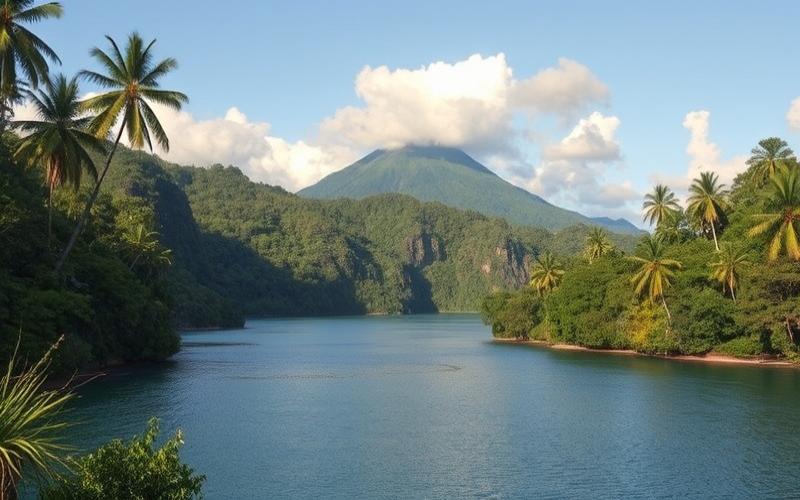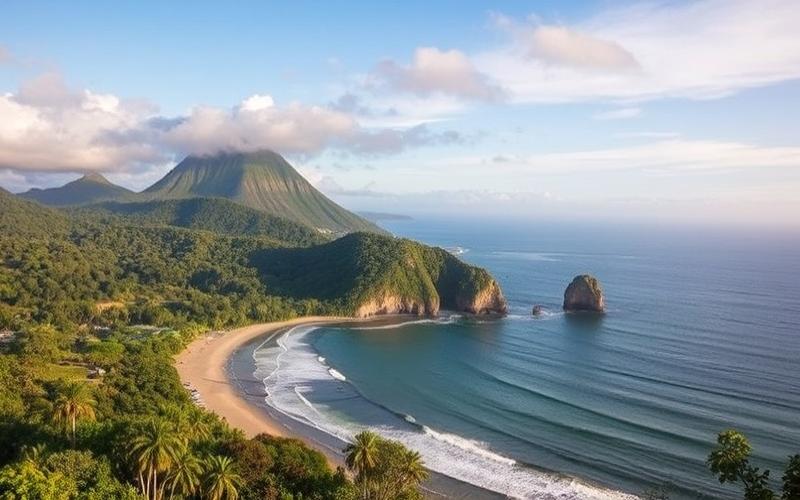
 Published on and written by Cyril Jarnias
Published on and written by Cyril Jarnias
Nestled between the Pacific Ocean and the Caribbean Sea, Costa Rica attracts an increasing number of French visitors each year, drawn by its lush nature and peaceful lifestyle. But where do these adventurers truly choose to settle in this small tropical paradise?
While some prefer the sunny beaches of the Nicoya Peninsula, others venture into the green valleys of the central region, near San José, the capital.
Favorite Areas for French Expatriates
This article explores the areas favored by French expatriates, reveals the reasons that drive them to settle in this unique country, and highlights the communities that establish themselves there to enjoy an unmatched quality of life.
Good to Know:
Costa Rica is renowned for its commitment to the environment and its “Pura Vida” lifestyle.
Mapping Francophone Communities in Costa Rica
Main Geographic Areas of Francophonie in Costa Rica:
- San José: The capital and main urban center, San José hosts the largest concentration of French speakers, particularly in neighborhoods like Barrio Amón and La Sabana.
- Jacó: A popular coastal town on the central Pacific, very attractive to French expatriates and investors.
- Tamarindo: A Guanacaste beach resort known for its international vibe and strong French community.
- Dominical: A small coastal town in the southern Pacific appreciated by French speakers seeking authenticity and nature.
| Region | Main Characteristics | Francophone Presence |
|---|---|---|
| San José | Capital, French cultural institutions, schools | Strong |
| Jacó | Surfing, nightlife, attractive real estate | Moderate to Strong |
| Tamarindo | High-end tourism, cosmopolitan life | Strong |
| Dominical | Preserved nature, alternative lifestyle | Moderate |
Attractiveness Factors for Francophone Communities:
- Pleasant tropical climate year-round
- Reasonable cost of living compared to Western Europe (especially outside tourist areas)
- Dynamic cultural offerings thanks to the Alliance Française and events organized in several cities
- Business opportunities in tourism (hospitality), real estate, or services related to expatriates
Specific Examples:
- San José:
- Easy access to French educational infrastructure
- Presence of diplomatic institutions (Embassy)
- Varied cultural scene with French film screenings
- Jacó & Tamarindo:
- Tourism development generating jobs and investments
- Tight-knit international community facilitating social integration
- Dominical:
- Natural setting conducive to remote work or alternative projects
Organization of Francophone Communities:
- Active associations: Alliance Française (several branches including three around San José), informal groups on social media dedicated to French or Franco-Costa Rican residents.
- Schools: Bilingual/French high schools mainly in San José; occasional initiatives elsewhere for supplementary education.
- Regular cultural events:
- Annual French Language Week in March,
- French food market,
- Film screenings/literary meetings,
- Official celebrations led by the Embassy.
| Structure | Location | Main Role |
|---|---|---|
| Alliance Française | San José + other hubs | Language/culture courses/exhibitions |
| High Schools/Bilingual Schools | Mainly Greater San José | Primary/secondary education |
| Embassy/Institutes | San José | Administrative/cultural/diplomatic support |
Recent Statistics on Resident Francophone Population:
Approximately 400,000 people are learning French, nearly 8% of the Costa Rican population, but the actual number of expatriates or native fluent speakers is much lower. However, Costa Rica remains a major regional hub with an active community supported by over 1,500 teachers.
Elements on social integration:
- Good acceptance thanks to Costa Rican multiculturalism
- Frequent participation of French/Francophones in local community life
- Growing involvement in the education/tourism sector
- Easier access to certain administrative services through association networks
The dynamic presence of Francophone communities in Costa Rica primarily relies on a dense associative network around major urban/tourist centers. These groups promote harmonious integration while keeping their linguistic and cultural traditions alive.
Good to Know:
Francophone communities in Costa Rica are mainly located in regions like San José, Jacó, Tamarindo, and Dominical. San José, the capital, attracts with its rich cultural offerings and business opportunities, while Jacó and Tamarindo, known for their beaches, appeal with their pleasant climate and variety of outdoor activities. Dominical is sought after for its quieter setting, perfect for those seeking peace. The cost of living, generally more accessible than in other paradise destinations, adds to the reasons for choosing Costa Rica. Francophone communities organize around associations like the Union of French Abroad, and French schools contribute to the bilingual education of youth. Regular cultural events help preserve and share French culture. According to recent statistics, about 5,000 French speakers reside in the country, with integration facilitated by common interests and dynamic adaptation to the Costa Rican way of life.
Neighborhoods Favored by French Expatriates
Neighborhoods Favored by French Expatriates in Costa Rica
French expatriates primarily choose to settle in the following neighborhoods and cities:
| City / Neighborhood | Main Assets | Francophone Community | Infrastructure |
|---|---|---|---|
| San José (Escazú, Santa Ana) | Western lifestyle, shopping malls, international schools, safety | Strong | Highly developed |
| Tamarindo | Lively beach resort, international life, access to beach and nature | Present | Developed tourism |
| Jacó | Surfing, relaxed atmosphere, proximity to San José | Moderate | Varied commerce |
Other appreciated areas: Nosara (yoga/surfing), Manuel Antonio (nature/beaches), Atenas/Grecia (temperate climate)
Main Criteria Attracting the French to These Neighborhoods:
- Francophone or international communities, facilitating social integration
- Presence of French or bilingual schools
- Quick access to private hospitals, international supermarkets, and essential services
- Quality infrastructure: reliable internet for remote work
- Western lifestyle possible in certain neighborhoods like Escazú or Santa Ana
- Proximity to nature: Pacific beaches (Tamarindo/Jacó), cool mountains (Atenas)
- Pleasant climate: temperate at altitude around San José; tropical on the coasts
Cultural and Economic Aspects Influencing the Choice:
- Search for a politically and economically stable environment (the Costa Rican “pura vida” appeals to many expatriates)
- Variable cost of living depending on regions (higher in premium neighborhoods near San José than on some less touristy coasts)
- Possibility for a French person to easily invest in local real estate without major restrictions
Appreciated Climatic Aspects:
Mild climate year-round around San José
Sun and tropical heat on the Pacific coast
Possibility to avoid extreme humidity by choosing mountainous areas like Atenas
Personal Experiences & Testimonials:
“We chose Escazú because we find a real French community there. Our children go to the local French school. The amenities are similar to what we had in France but with a much more pleasant climate!”
“Tamarindo offers incredible freedom. We live barefoot almost all year! There are many foreign entrepreneurs here – it’s easy to start a business or work online.”
“In Jacó I learned to surf while keeping my remote job thanks to the good internet network… And above all, I feel surrounded by open-minded people from all over the world!”
Practical Criteria Before Moving:
- Proximity to international airports for easy travel to/from France
- Choice between dynamic urban atmosphere or peaceful beach setting depending on family/professional preferences
- Monthly budget adapted to the highly variable local cost depending on the chosen neighborhood
Living among an active community while enjoying the tropical climate and superior quality of life motivates more French people each year to choose these emblematic Costa Rican neighborhoods.
Good to Know:
In San José, the dynamic capital of Costa Rica, neighborhoods like Escazú and Santa Ana are favored for their proximity to amenities, international schools, and an active Francophone community that offers a warm welcome to newcomers. Tamarindo, on the Pacific coast, attracts with its paradise beaches and relaxed atmosphere, ideal for surf and nature enthusiasts; modern infrastructure and numerous services make daily life pleasant. Jacó appeals to young expatriates and retirees with its festive vibe and economic opportunities in the tourism sector. The tropical climate, cultural richness, and relative safety of these areas enhance their appeal. Paul, an expatriate in Tamarindo, shares that thanks to Francophone neighbors, he adapted more quickly to his new life, while Sarah, in San José, appreciates the cultural diversity and quality of available healthcare.
Social Media as a Meeting Point for the French in Costa Rica
Social media plays a central role in the lives of French people settled in Costa Rica, serving as virtual meeting points and facilitators of integration.
Main Platforms Used by the French in Costa Rica:
- Facebook: Dominant platform for creating groups dedicated to the French and Francophone community.
- WhatsApp: Used for quick exchanges, organizing outings, and sharing practical information.
- InterNations: International social network specifically designed for expatriates, with an active section for the French in Costa Rica.
- Expat.com: Structured forum where expatriates exchange advice, share experiences, and help each other daily.
| Platform | Main Function | Examples of Groups or Communities |
|---|---|---|
| Thematic groups, announcements | “French in Costa Rica”, “Costa Rica real estate rental sale purchase” | |
| Instant discussions | Private groups for neighborhoods or schools | |
| InterNations | Expatriate network, events | InterNations French Community Costa Rica |
| Expat.com | Forum, mutual aid, practical advice | “French in Costa Rica” section |
Facilitation of Integration and Connection Among Expatriates:
- Quick connection with other French people to find local contacts, share advice on settling, employment, health, or schooling.
- Help in finding specific services (bilingual babysitter, French products, housing, etc.).
- Creation of a sense of belonging through exchanges in the native language and the friendliness of informal discussions.
Examples of Dedicated Online Groups or Communities:
Facebook: “French in Costa Rica”, “Costa Rica real estate rental sale purchase”.
InterNations Costa Rica: allows searching for members by affinity and accessing private forums.
Expat.com: dedicated section with thematic discussions (adaptation, isolation, social life).
Impact Testimonials in Daily Life:
“Facebook groups helped me find my first housing and meet other French families upon my arrival.”
“Thanks to InterNations, I was able to participate in outings and picnics, which prevented me from feeling isolated.”
“Discussions on WhatsApp help me stay informed about events and administrative procedures in real time.”
Evolution and Dynamics of Interactions:
- Over the years, groups have structured around specific themes (real estate, mutual aid, leisure, children).
- The arrival of new expatriates generates constant renewal of exchanges and experience sharing.
- The pandemic reinforced the use of digital tools to maintain connections and organize virtual meetings, before a gradual return to physical events.
Role in Organizing Events and Physical Meetings:
- Social media serves as the main tool for announcing, organizing, and coordinating events (get-togethers, hikes, workshops, themed evenings, sports meetings).
- Physical meetings foster faster integration, exchange of local tips, and contribute to the psychological well-being of newcomers.
Contribution to Adaptation and Fulfillment:
- Regular online interactions and at events facilitate the formation of a strong social circle.
- Access to advice and feedback reduces adaptation difficulties and the feeling of isolation.
- Sharing practical information and opportunities (employment, housing, schooling) promotes successful expatriation.
Social media has become an essential pillar for the integration, cohesion, and fulfillment of the French community in Costa Rica, transforming the expatriation experience into a collective adventure.
Good to Know:
Social media plays a crucial role in the lives of French people settled in Costa Rica, facilitating integration and maintaining connections. Facebook and WhatsApp are the main platforms used, where many dedicated groups, such as “French in Costa Rica” and “French Expats Costa Rica”, bring together expatriates sharing practical advice, experiences, and event invitations. These online communities allow quick access to information on administrative procedures or the best schools for children, while promoting the organization of physical meetings to strengthen bonds. Alain, an expatriate since 2018, testifies that these groups helped him feel less isolated by enabling him to create a strong social network. Since the pandemic, activity on these networks has intensified, moving from virtual discussions to regular meetings, such as picnics and cultural workshops, thus fostering an enriching environment and promoting successful acclimatization of the French in the country.
The Impact of French Culture on Settlement Regions
The influence of French culture on settlement regions in Costa Rica manifests tangibly in daily life, the local economy, and the educational landscape, particularly in areas like San José, Guanacaste, and the central region.
1. French Traditions and Lifestyle in Local Communities
- Gastronomy:
- Opening of bakeries, pastry shops, and restaurants offering French specialties (baguettes, croissants, quiches, wines, cheeses).
- Organization of gourmet markets and tastings for the national holiday on July 14th or events like French Gastronomy Week.
- Art de Vivre:
- Valuing conviviality around the table, shared meals, and time dedicated to family and friends.
- Influence on interior design, fashion, and organization of literary cafés or French-style musical evenings.
- Cultural Events:
- French film festivals, exhibitions by French artists, cooking workshops, conferences on literature or philosophy.
- Activities led by the Alliance Française and Franco-Costa Rican associations.
2. Modification and Enrichment of Local Customs
- Social Aspects:
- Introduction of new celebrations (Beaujolais Nouveau, July 14th) bringing together Costa Ricans and expatriates.
- Intercultural exchanges promoting tolerance, open-mindedness, and curiosity towards other lifestyles.
- Strengthening community solidarity, particularly through mutual aid between expatriates and local residents.
- Economic Aspects:
- Job creation in restaurants, tourism, French teaching, and crafts.
- Development of commercial partnerships via the France-Costa Rica Chamber of Commerce.
- Contribution of French know-how in hospitality, sustainable management, and agrotourism.
3. Testimonials on Cohabitation and Cultural Adaptation
| Testimonials from French Expatriates | Testimonials from Costa Ricans |
|---|---|
| “We were surprised by the warmth of the welcome and the simplicity of relationships here. But we had to adapt to the ‘pura vida’ pace, slower than ours!” | “The French bring new ideas, especially in cuisine and education. It enriches us, even if sometimes their habits surprise us.” |
| “The French community is tight-knit, but we do everything to integrate and learn Spanish.” | “Working with French people allowed me to discover another way of thinking, more critical and organized.” |
4. Geographic Areas with Strong French Influence
- San José:
- Presence of the Alliance Française, French high schools, restaurants, and regular events.
- Barrio Amón neighborhood: protected architectural heritage, lively artistic and cultural life.
- Guanacaste:
- Attracts many French people, notably for ecotourism, agricultural projects, and beach life.
- Development of small businesses, yoga centers, art galleries run by expatriates.
- Central Region:
- Rural communities and medium-sized towns hosting French families, often involved in agrotourism and alternative education.
5. Role of Educational Structures and French Institutions
- French High Schools:
- Dissemination of the French school curriculum, bilingualism, international exchanges.
- Promotion of values such as secularism, critical thinking, and creativity.
- Alliance Française:
- French courses for all ages, official certification, organization of varied cultural activities.
- Meeting place for French speakers and Francophiles, catalyst for intercultural dialogue.
- CCI France Costa Rica:
- Support for entrepreneurs, organization of professional fairs, dynamization of economic and technological exchanges.
The contribution of French culture to Costa Rica translates into a dynamic of continuous exchanges, where traditions and innovations intertwine to enrich local practices, strengthen social bonds, and open new educational and economic perspectives.
Good to Know:
In Costa Rica, the influence of French culture manifests through various aspects of daily life, enriching local communities. In San José, markets are filled with French products, from baguettes to fine cheeses, while cafés embrace the French art de vivre with convivial spaces. Film festivals and wine parties organized by expatriates attract local interest, illustrating dynamic cultural integration. In the Guanacaste and central regions, this cohabitation is also seen through the emergence of bistros and art galleries, witnesses to a fruitful cultural exchange. Economically, Franco-Costa Rican companies bring diverse know-how, influencing the local market. Testimonials highlight successful adaptation, with the French praising the warm welcome, while Costa Ricans appreciate this cultural diversity. Moreover, the presence of several French alliances and Francophone schools not only facilitates the dissemination of French language and culture but also strengthens Franco-Costa Rican relations, attracting a new generation to these institutions.
Disclaimer: The information provided on this website is for informational purposes only and does not constitute financial, legal, or professional advice. We encourage you to consult qualified experts before making any investment, real estate, or expatriation decisions. Although we strive to maintain up-to-date and accurate information, we do not guarantee the completeness, accuracy, or timeliness of the proposed content. As investment and expatriation involve risks, we disclaim any liability for potential losses or damages arising from the use of this site. Your use of this site confirms your acceptance of these terms and your understanding of the associated risks.

